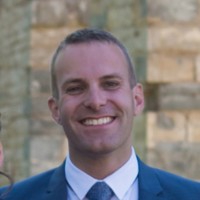Capella (once again) in the space, meeting nanosatellites

Thursday, January 20th, 2022 - 5:00 PM CET / 11:00 AM EST
This webinar has ended, but feel free to watch the recording.
The slides of the presentation are available here: https://bit.ly/capella_webinar_220120_slides
With such a name, Capella, the brightest star in the constellation of Auriga, was undeniably destined to meet space. Previously, it landed in the French Space Agency (CNES) to demonstrate that the current document-centric process can be improved by injecting a (huge) pinch of Capella models slightly extended by new features dedicated to system test specification. Applied on the “Space Variable Objects Monitor (SVOM)” operational use case, it helped the CNES in the definition and the validation of its future space system dedicated to the gamma ray detection and study.
Proof being made, this experience propels Capella to another space company, Kinéis, created by CNES and CLS to strengthen the historical and reputed Argos IOT service, ensure its continuity, enhance its performance and continue to make it a strategic technology for science. Argos is a satellite system involved in location and data collection dedicated to the study and protection of the environment. Kinéis’s current challenge consists in adding 25 advanced nano-satellites in the existing system in order to improve IoT capabilities and address new markets.
In line with the CNES Capella experience, Kinéis decided to build its “System Test” process on Capella. This work highlighted that the CNES Capella process was not covering all Kinéis cases. The extendibility and the flexibility of Capella nevertheless allowed us to carry on the previously initiated toolchain in order to cover the full process and support more use cases. This experimentation confirms once again that Capella can strongly assist engineers in the definition of the system test phases… waiting for the launch of the new satellites in 2023, and Capella getting closer to his eponymous stellar system.
Jonathan Lasalle is in charge of MBSE-related activities at Artal/Magellium. His daily job mainly consists in guiding  engineers through the introduction and the propagation of the MBSE principles on their own context. In addition to providing training and coaching sessions (principally Capella-based), he manages third-part software customizations (Capella viewpoints, Papyrus extensions...). He is also the architect of the Citrus framework dedicated to model-based test mean engineering, bridging the gap between the system architecture activities and simulation platform configuration.
engineers through the introduction and the propagation of the MBSE principles on their own context. In addition to providing training and coaching sessions (principally Capella-based), he manages third-part software customizations (Capella viewpoints, Papyrus extensions...). He is also the architect of the Citrus framework dedicated to model-based test mean engineering, bridging the gap between the system architecture activities and simulation platform configuration.


